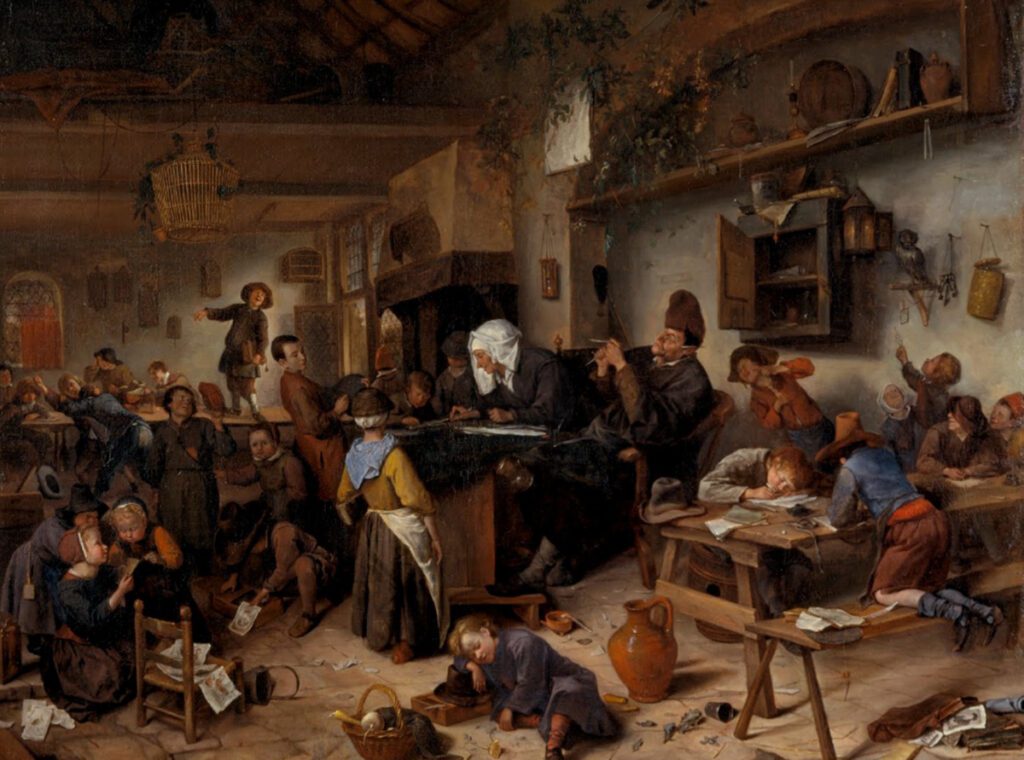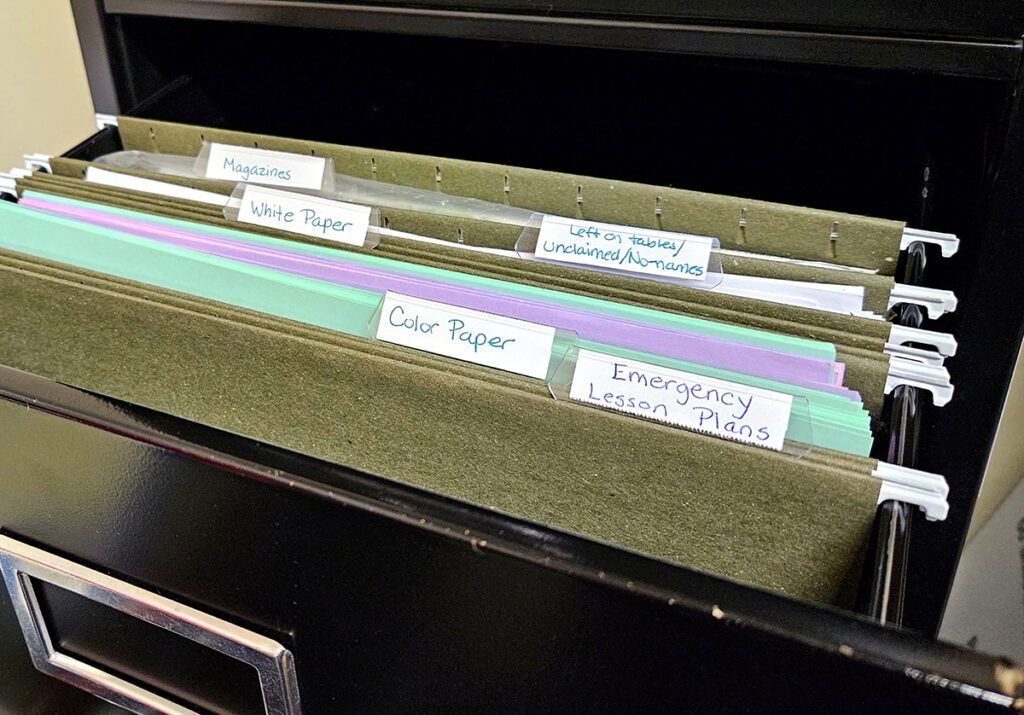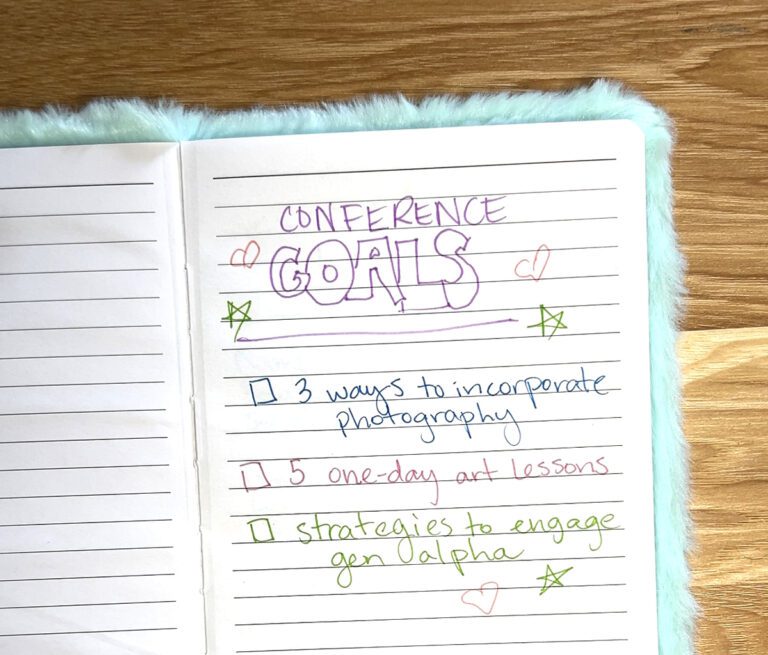Art teachers have so much to appreciate! A career in art education is a unique and fulfilling journey. From the initial spark of the first years of teaching to the profound wisdom and experience right before retirement, each career phase brings new and unique things for which to be thankful. At each of these stages, art educators find themselves not only imparting knowledge but also gaining insights, forging connections, and leaving an enduring legacy in the realm of visual art and education.
Let’s explore what art teachers appreciate most at each phase of their careers.

Newbies (Years 1-3)
The initial stage of an art educator’s career is full of newness, excitement, and learning. Armed with creativity and enthusiasm, it’s a time of challenges, intense motivation, and a lens of novelty.
Here are three things newbie art teachers appreciate:
- Excitement
Whether you’re fresh out of an education program or transitioning from a different career, it’s thrilling to get into a classroom and try out all of your ideas. Finally, you get to meet your students and be a difference-maker. Everything is a fresh blank slate you get to draw on and the newness keeps you enthused and energized! - Learning and Experimentation
The first few years of teaching are full of implementing ideas, tweaking them, and even changing them completely. Newbies get to experiment with different classroom management techniques and teaching approaches. It keeps you on your toes and it’s never boring! Art teachers are grateful for all they learn in those first few years. - Mentors
The beginning of an art educator’s career is full of questions. What’s the best technique for teaching middle schoolers to sew? How can I best support my new student? What’s a solid way to approach an administrator with an idea? Mentors and team leaders are there for all of the questions new teachers have about pedagogy and school policies and procedures. They can even be a shoulder to lean on when you need encouragement or want to vent.
If your school doesn’t have a mentor system, find a mature and established teacher who will take you under your wing. They don’t have to be an art teacher to answer questions and brainstorm. At the end of the day, a good teacher is a good teacher. If they are at your school, they can fill you in on your building’s norms and staff. Alternatively, connect with your district’s team of art teachers, go to conferences and network, or take a class with other art teachers to build your community.

Fresh and Hip (Years 4-10)
Fresh and hip art teachers still carry the excitement and energy of newbie teachers, but they have the advantage of a bit more experience! They’ve moved beyond the initial challenges of classroom management and curriculum adaptation, but they’re still digging deep into their craft.
Fresh and hip art teachers appreciate these three things:
- Teacher Friends
When the freshness and excitement of teaching have worn off, colleagues keep each other going. In the middle of a teaching career, a good colleague can carry you through hard times, help work through big challenges, and be there when personal problems arise. Having someone steady to lean on supports you from mid-career burnout! - Efficiency
By the middle of your career, you have learned exactly what to do and how to do it quickly. You’ve developed systems to maximize productivity and prevent a waste of time and budget! - Leadership Opportunities
The middle phase brings opportunities for leadership within the educational community. Art teachers at this stage know how to cater to diverse learning styles and how to expertly manage a classroom. Plus, you’ve refined your curriculum. Art teachers start becoming mentors, team leaders, department heads, or curriculum coordinators to share knowledge with others.

Mature and Established (Years 11-15)
Mature and established art teachers probably have a paint stain or two on all of their clothes. They wear those stained clothes with pride because each stain is a memory they’ve made with their students!
Let’s explore three things mature and established teachers appreciate:
- Expansive Toolkit
Mature and established art teachers have a huge repertoire of tools and resources in their toolkits. You’re a pro at pulling these resources out whenever you need them. If a project takes less time than expected, technology fails, or you’re short on supplies, you have a bank of activities and strategies to get through! - Classroom Systems
All of the experimentation to determine the best cleanup systems, classroom management techniques, and supply organization have paid off! Mature art teachers know what works and you are confident in your ability to maintain your systems. - Multiple Student Cycles
At this point in your teaching career, art educators have taught several cycles of students. You’ve had students’ younger siblings and experienced the differences between generations. You get the heartwarming experience of watching your former students grow up and mature!

Veterans (Years 15+)
Veterans have been around the block a gazillion times and they have a deep understanding of student behavior and development because of what they’ve seen through the years! Although they have a wealth of experience and wisdom, they still have much to appreciate.
Veteran art teachers are grateful for these three things:
- Helping the Next Generation
At this point in your career, you are an expert in your field. You have the privilege of helping the new generation of teachers. Your contributions as mentors, team leads, conference presenters, board members, and helpful colleagues mean you continue to impact future students, even after you’ve made the decision to retire. - New Teachers and Fresh Ideas
While veteran teachers help new colleagues, you also appreciate the fresh energy and ideas new teachers bring to the profession. It can increase your love of the occupation and reinforce the belief you are leaving the profession in good hands. - Fruits of Their Labor
Veteran art teachers love having graduates come back and visit. Even more rewarding is learning how former students have gone on to make their own marks in the world. Nothing beats seeing or hearing the impact you had on your students’ lives. It makes the years of effort and hard work more than worth it!
The journey of an art educator is one art teachers can appreciate at every stage. At the beginning of their careers, art teachers love the excitement, learning, and experimentation. They appreciate their mentors and families who get them through those first years. In the middle of their careers, they appreciate their colleagues, knowing what works, and being able to make systems to maximize efficiency. At the end of their career, art teachers have shown dedication and can celebrate their careers. They get to see their impact, learn from new teachers, and help the next generation of art educators and art students. Through relationships formed, art created, and continuous growth and influence, art teachers have much to appreciate!
What stage are you in and what are you most appreciative of?
Share a piece of advice to an art teacher in the Newbie phase!
Magazine articles and podcasts are opinions of professional education contributors and do not necessarily represent the position of the Art of Education University (AOEU) or its academic offerings. Contributors use terms in the way they are most often talked about in the scope of their educational experiences.





